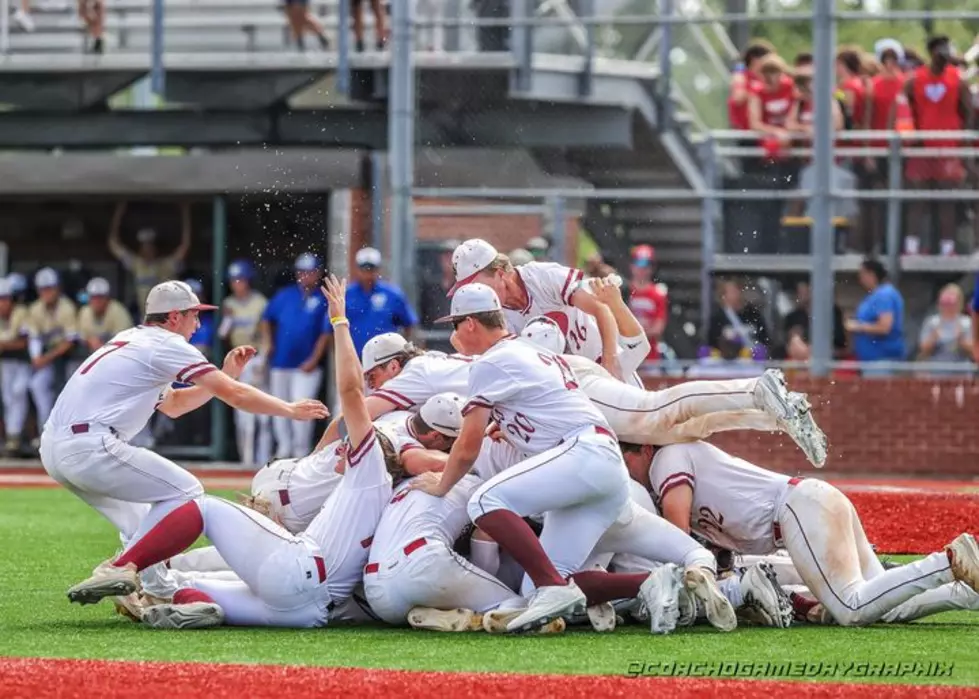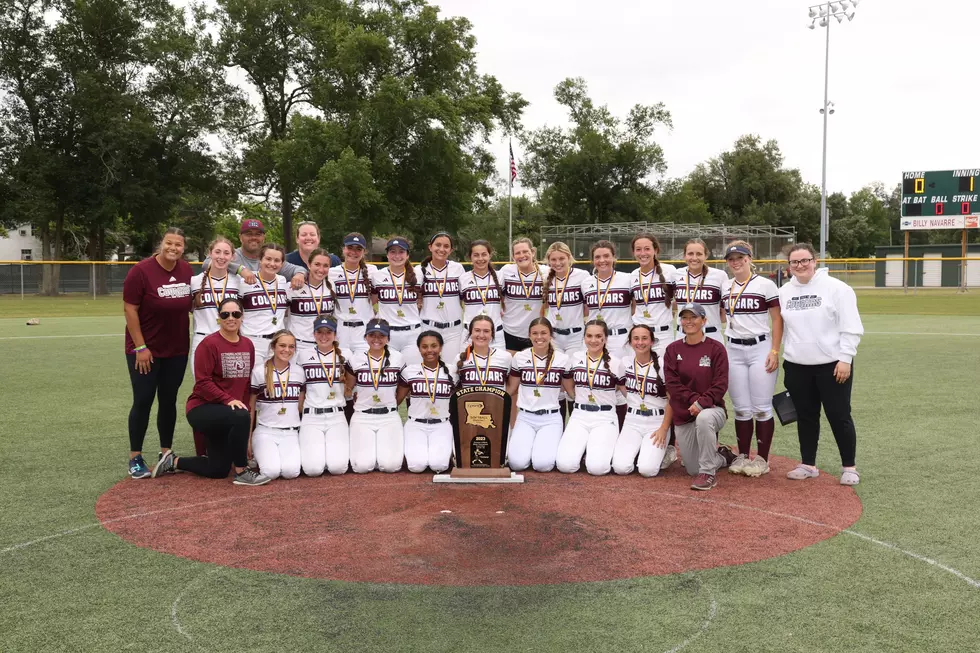
Former LHSAA President Writes Open Letter About Select/Non-Select Split
An Open Letter to the High School Principals of Louisiana,
For the last two plus months, I have chastised myself internally often for not being even more vocal in the interim before the most recent Louisiana High School Athletic Association Convention in January concerning for the overall health of the LHSAA and high school sports in general in the state of Louisiana. Since 2010, I have been a member of the LHSAA Executive Committee and served as President of the LHSAA from 2013-2014. I currently serve as the Past-President of the LHSAA and will end my term on the Executive Committee in January 2017.
During my tenure on the Executive Committee, I have seen many, many issues that have been debated within our association. During this time we have contended with lawsuits, legislation, a change in leadership, financial struggles, and I could continue. We have had to contend with an almost constant turnover of high school principals in large percentages within the association every year. But the most heated debate has centered on the issue of public vs. private, or as it is more commonly known now as select vs. non-select. I, like many of you, have tried to wrap my arms around this whole debate and come to a place or a plan with which we could all live. As a principal at the time of the January 2013 vote, I reluctantly voted in favor of the split plan in football in hopes that this action would once and for all end the long debate over the issue. However, as I assumed the presidency immediately after this vote, I very quickly realized that this decision by the association had placed the LHSAA on a self-destructive course.
Although I am a lifelong resident of Louisiana and former Louisiana history teacher, I quickly found out that even I did not fully understand the great educational and cultural diversity of the state. To learn more, I sat out to visit schools and communities all over the state to get a better feel of the issue that had suddenly created such an outpouring of emotions across our state. Many of the conversations that I have had across the state have further cemented many of the things that I already knew about the issue. However, what I quickly learned was the tremendous misunderstanding that areas from all over the state had about one another. We have always heard that there were philosophical differences in educational, and sometimes cultural, philosophies between the northern and southern parts of the state. My travels confirmed such beliefs, but I also learned that there were also tremendous differences in educational thinking between north and south, rural vs. urban, New Orleans vs. the remainder of the state, southeast vs. southwest, southeast vs. northwest, and so on. I think you get my point.
I also realized that the multiple educational options now available to Louisiana families have not only changed the educational landscape in Louisiana, but have fundamentally changed the LHSAA as well. When the LHSAA Constitution was crafted in 1920, our state did not have vouchers, charters, M&M transfers, school choice, accountability labels, and the many other programs/policies that allow for student mobility. These concepts have further created a uniqueness that has added to the already tremendous diversity in our state.
With the result of this melting pot of diversity and educational options now present in Louisiana, I am convinced that we as a state do not know or understand our fellow Louisianans in relation to education and many of our other cultural issues. Persons on this debate have heartfelt feelings on why they feel their viewpoints and beliefs are correct. In many instances both sides have equally strong arguments.
Non-Select schools and supporters feel that they cannot control enrollment numbers by choosing who they enroll or do not enroll into their schools. Non-Select Schools also feel that it is unfair for them to be confined, many times by federal court orders, to defined attendance zones from in which they are allowed to draw students. Ironically, the afore mentioned “new” state programs and policies have created an environment where Non-Select Schools have an opportunity to legally “select” their students as well while maintaining Non-Select status. In other instances, there are Non-Select Schools that, for example, are the only school offering football in their particular parishes; such a situation allows students from all over their parish the opportunity to “select” to go to a different school where they could participate in football. Select Schools contend that students attend their schools for cultural, academic, and religious reasons. Select Schools feel their students have the right to make that choice by constitutional law and should not be punished or segregated when that decision is made.
Through my experiences as a student-athlete, coach, principal, and over the last nearly seven years as a member of the LHSAA Executive Committee, I think that I have a better understanding of both schools of thought. In January 2015, I addressed the LHSAA Convention as I stepped away from the LHSAA presidency and reminded our principals of how this association has impacted my life and the lives of so many of our principals, coaches, teachers, students and communities. I myself am a product of the LHSAA. I also reminded our principals of the purpose of the LHSAA as stated in Article 2 of the LHSAA Constitution:
This Association is organized exclusively for charitable, religious, educational, and scientific purposes, including for such purposes as the making of distributions to organizations that qualify as exempt organizations under section 501(c)(3) of the Internal Revenue Code, or the corresponding section of any future federal tax code, and including the following:
- To promote, regulate, and direct the interscholastic athletic activities of Louisiana high schools that are members of the Association.
- To assist, advise, and aid schools in organizing and conducting interscholastic sports.
- To protect members of the Association by preparing and enforcing eligibility rules that will equalize and stimulate wholesome competition.
- To prevent the exploitation of member schools’ programs by special interest groups.
- To preserve the game for the boys and girls and not sacrifice the boys and girls to the game.
- To promote the spirit of sportsmanship and fair play in all athletic contests.
- Any other activity, which is legal for a 501(c)(3) organization to do.
I think it is important to pay close attention to all of these purposes but specifically to items 5 and 6. Our purpose has always been and should always be to preserve the game for our students and to preserve the principles and values that competition teaches our young people. I never had the privilege of playing on a state championship team at my alma mater Sicily Island High School. But the lifelong lessons that I learned on those teams at that small school in rural Catahoula Parish are lessons that I have taken with me throughout my life and that I hope that I have passed on to my students and my own kids. High school athletics is not about everyone winning a piece of wood, as it has been said of the now numerous championships that we are set to offer in the coming year. It should be about teaching lessons that will help sustain our kids as they navigate in this difficult world.
I watched the House Education Committee on March 23rd hear several bills that came before them. They were quickly discussed, voted on, and moved through the legislative process. I then saw House Bill 863, by Rep. Kirk
Talbot, be introduced to the House Education Committee. This bill, one of several possible bills that could be aimed at the LHSAA and high school athletics during this session, would basically force schools to play in a unified athletic association or risk losing their public funds. What proceeded was a lengthy debate over athletics and government involvement. Even in the Legislature, athletics draws far more discussion than the other essential bills that affect the educational success of our kids. What I also realized by observing this hearing in March and sitting through many others over the last several years, is that there is no consensus in the state legislature either. What I did hear loudly and clearly from both sides in the legislature, however, was that the LHSAA should find a way to work this issue out so that the Legislature does not have to act to determine the outcome for Louisiana high schools.
Unfortunately, some of my colleagues say “let them pull out” or “the legislature won’t get involved.” Well, the legislature has proven through this bill and others in the past that they “will” get involved in the business of high school athletics in our state. I have read and heard of the newly proposed athletic cooperative that is being considered by some schools as an alternative to the LHSAA or what some have called the “let them pull out” plan. Personally, I do not see anything good resulting from a situation where this state has two competitive athletic associations. Such an end would only further divide the state and cause schools in the State of Louisiana with student-athletes to suffer suffering from issues of adults. I see no avenue where either proposal will or can be successful over the long haul from a competition standpoint or a financial standpoint.
The LHSAA and high school athletics in Louisiana is at a crossroads. More importantly, our children’s futures related to the lessons that competitive high school athletics contributes to successful development is at a crossroads. We are again faced with further separation that I personally feel is not good for the LHSAA or the proposed cooperative on many levels. We are again faced with legislative intervention, which as a member of this association for many years, I would hate to see. For 96 years, the LHSAA has overseen competitive athletics in Louisiana. I would hate to see that great, rich history be thrown out or torn apart because we absolutely refuse to put our student-athletes first.
There will be many of my colleagues and individuals who will look at this letter unfavorably. They will say that I am caving to legislative pressure or that I am caving to my select school friends even though I am a public educator. This thinking again shows the great divide and the lack of desire to reaching consensus. Many will elect to continue to complain and offer no solutions. I understand that and I am prepared for their criticisms. However, I look at this letter differently. I look at it as caving into the lessons that I was taught by my parents to stand up for the ones who can’t stand up for themselves. I look at it as standing up for the student-athletes of Louisiana who are stuck in the middle of quarreling adults who have lost sight of the mission of the LHSAA and competitive athletics. I look at it as standing up for kids and trying to make sure that they have the same opportunities that I did to learn the valuable life lessons and skills that high school athletics offers. Selfishly, I also, through this letter, want to make sure that I take a stronger stand for the LHSAA and for the students of our state, unlike I feel I did prior to our January convention.
The LHSAA Executive Committee convenes again on April 14th in Baton Rouge. Rep. Talbot has graciously agreed to hold his bill until after our meeting. I have no idea what will come out of our meetings, but I do hope that we can come to the table and produce a plan of action that will be beneficial to the student-athletes of Louisiana and make it possible for the LHSAA to see its 100th anniversary.
I challenge all member school principals of the LHSAA to set aside their differences and look for COMPROMISE. Compromise is defined as an agreement or a settlement of a dispute that is reached by each side making concessions. Because you see, BOTH sides have to give and take in order to reach an agreement. Compromise won’t be easy. If there were an easy solution to this problem, we would have already found it. Hopefully, between now and April 14th, member school principals, the LHSAA School Relations Committee and the LHSAA Executive Committee can collectively formulate or derive a plan to save high school athletics in Louisiana as we know it. God help us if we can’t.
Todd Guice
LHSAA Past-President
More From 103.3 The GOAT









